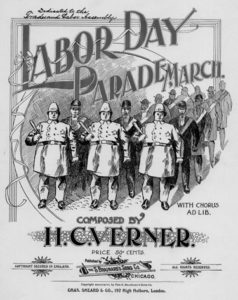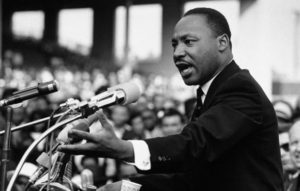Next Monday is Labor Day. Many celebrate it as an unofficial end to summer, where children have gone back to school and cooler fall temperatures are almost here.
Like many holidays, we often celebrate them more because of the time we get off from work, not for the true meaning of the holiday. However, have you ever stopped to think about why we do celebrate Labor Day? Most of us work day in and day out, but why should we celebrate this work?
Why do we Celebrate Labor Day?
The first Monday in September is called Labor Day. Labor Day was a creation of the labor movement and is dedicated to the social and economic achievements of American workers. It constitutes an annual national tribute to the contributions workers have made to the strength, prosperity, and well-being of our country.
Beginning in the late 19th century, as the trade union and labor movements grew, trade unionists proposed that a day be set aside to celebrate labor.
“Labor Day” was promoted by the Central Labor Union and the Knights of Labor, which organized the first parade in New York City. In 1887, Oregon was the first state of the United States to make it an official public holiday. By the time it became an official federal holiday in 1894, thirty states in the United States officially celebrated Labor Day.
City. In 1887, Oregon was the first state of the United States to make it an official public holiday. By the time it became an official federal holiday in 1894, thirty states in the United States officially celebrated Labor Day.
While a street parade was first used to celebrate Labor Day to show “the strength and esprit de corps of the trade and labor organizations,” according to the Department of Labor website, that wasn’t the only celebration of the day. Eventually, a festival was held after the parade, and speeches were given by prominent men and women in the community.
In 1909, the Sunday before Labor Day was adopted as Labor Sunday by the American Federation of Labor convention and dedicated to the spiritual and educational aspects of the labor movement.
Why is Work Important?
- If you work, you can earn money. If you earn money, you can buy things you need, pay your bills, have a place to live, and basically do things you want to do. Without money, you can’t do much!
- When you work, you contribute to the community. You help make the economy and your community stronger. You are being a productive citizen and a valued community member.
- When you work, you develop new skills, learn new things, and create a record of employment. Then, when you want to get a new or a better job, your experiences can help you to do that.
- Having a job or career makes you feel good. Yes, you heard us right. Knowing you can do something well and earn money for your skills is a great feeling.
- Having a good job can also make people happier and healthier. Those with jobs tend to recover from sickness quicker and are at less risk of a long-term illness than those who don’t work.
- Last but not least, when you have a job or a career, you have self-respect, dignity, and self-worth. You are being responsible and making sure that you can take care of yourself. You are creating a solid foundation that you can build on to have a successful future.
 Having a job or career can provide satisfaction by not only allowing you to make meaningful contributions, but also to allow you to provide for yourself and your family. As Martin Luther King said,
Having a job or career can provide satisfaction by not only allowing you to make meaningful contributions, but also to allow you to provide for yourself and your family. As Martin Luther King said,
“No work is insignificant. All labor that uplifts humanity has dignity and importance and should be undertaken with painstaking excellence.”
Work also helps to build self-esteem. The work you do at your job or home gives you something to take pride in as you reflect on what you’ve accomplished. Even if the work seems small, it’s still a benefit to those with whom you work and helps achieve goals that you or others may have set.
One of the great keys to success is hard work. In my 30-year career, I’ve learned that the most successful people aren’t the smartest or the most talented. Beyond IQ or talent, what most affects our ability to achieve our goals is grit.
Grit is your determination to put in the effort, believing that failure can be overcome. It’s a willingness to conquer challenges, instead of avoid them.
“GRIT is that mix of passion, perseverance, and self-discipline that keeps us moving forward in spite of obstacles” says Daniel Coyle, author of The Little Book of Talent: 52 Tips for Improving Your Skills.
I want to leave you with one of my favorite poems. I’m not sure who the author is, but the message it sends is strong and resonates with the Labor Day holiday.
“Stick to your task ’til it sticks to you; Beginners are many, but enders are few.
Honor, power, place and praise will always come to the one who stays.
Stick to your task ’til it sticks to you; Bend at it, sweat at it, smile at it, too;
For out of the bend and the sweat and the smile will come life’s victories after a while.”
—Author Unknown
In the 1860’s, Francis Galton suggested in his book, Hereditary Genius, that overachievers are “remarkable in three ways: they demonstrate unusual ‘ability’ in combination with exceptional ‘zeal’ and ‘the capacity for hard labor.’”
Combining our talents with passion and hard work will allow us to succeed beyond our wildest imagination.
We need to constantly reflect on the privilege of being blessed to live in a country where we are free to labor in whatever work we choose. Let us remember that no labor is in vain, nor is it worthless, but brings lasting value to those that we serve – let us serve with honor and excellence!
